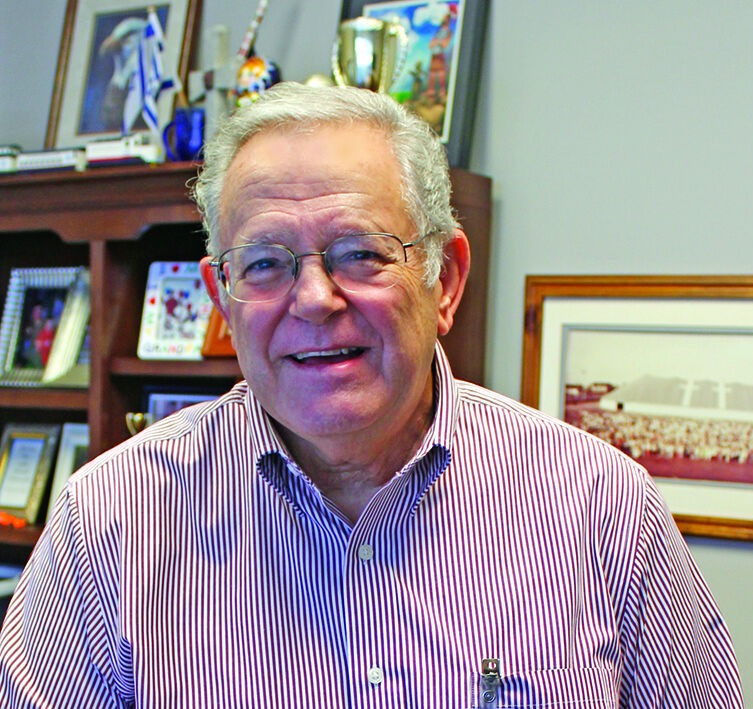
by Dr. Dennis Demuth
In his book The Making of a Leader, J. Robert Clinton states, ‟Over 85% of leaders cannot finish well. That means over 85% of leaders cannot close their careers without experiencing a significant leadership pitfall.” In my 35-year tenure as Superintendent of Schools for Victory Christian School in Tulsa, OK, and 42 years in school administration, I have encountered many pitfalls. Some I avoided and others I had to work my way through; all provided great learning experiences.
The first pitfall to avoid is failing to get the Holy Spirit involved in the day-to-day decision-making and management within the school.
This critical pitfall is presented in Christian School Insights: Inspirational and Practical Topics for Christian Educators. Not only is this a pitfall for school administrators, but it can also be a pitfall for every Christian educator, regardless of their role in a Christian school.
Every individual brings a certain level of knowledge and understanding to their position. This knowledge comes through coursework, training, and life experiences. In my first role as a school administrator, I had to draw upon my training and experience as a school psychologist, not a trained school administrator, not even a teacher. It didn’t take long to realize that if I wanted to have a successful tenure, I needed to pray more and go beyond my knowledge, experiences, and abilities. Phil. 2:13 became my go-to action verse. “For it is God who works in you both to will and to do for His good pleasure” (NKJV). I realized that His good pleasure was my success.
How do I work with God if God truly works in me to bring about success? Consider the following four ways:
1) Follow His plan and direction for each day.
2) Make His thoughts (Word) your thoughts. This requires walking in an attitude of prayer.
3) Let Him be your personal guide for every moment.
4) Tap into His wisdom which comes through the Holy Spirit.
As I began to ask specifically for wisdom on each issue I faced, the Holy Spirit led me to make decisions and choices that produced results. God’s wisdom through the Holy Spirit enhanced my common sense and enabled me to take beneficial action.
I learned to understand that regardless of the challenge I was facing, I knew that God had an answer. This required me to go beyond my own administrative knowledge, which was limited, to tap into Godly wisdom and knowledge, and to release my faith for James 1:5 to be fulfilled in my life, “If any of you lacks wisdom, you should ask God, who gives generously to all without finding fault, and it will be given to you” (NIV).
Let me offer four actions to help avoid this pitfall. You will find these in Christian School Insights.
First, learn to tune in to the voice of the Holy Spirit. The Holy Spirit is always speaking; it is a matter of taking the time to listen. This is critical whether it is the first year of administration or the 35th year. It is much like tuning in a digital television antenna. We dropped our cable provider a few years ago to save money, and I purchased a digital antenna. Once I set up the antenna, I moved it around in different directions. The first time I was able to pick up fifteen channels. After fine-tuning the antenna, I finally received twenty-five channels. Just this last week, I readjusted my antenna, and to my amazement, I can now tune in to forty-five channels. In the same way, it takes time to develop a clear reception of the Holy Spirit’s voice as He speaks to one’s recreated spirit.
In most cases, tuning in to the Holy Spirit involves tuning out all the distracting voices and thoughts. As this process is learned, one can avoid costly pitfalls. We all have had experiences of not listening to the Holy Spirit. As a Christian educator, you are faced with all kinds of thoughts and ideas. The Holy Spirit helps you sort out what you should listen to. As you listen to Him, He will order your steps. Psalm 37:23 says, “The steps of a good man are ordered by the Lord” (KJV). The Holy Spirit directs you to avoid calamity, to avoid evil, and to allow you to be in the right place, at the right time, doing the right thing the right way, so that good things happen. (See Spirit-Directed Education: A New Approach to Education.)
Second, cultivate a sensitivity to the Holy Spirit. How can this sensitivity be enhanced? The best way I know is to
1) spend time reading the Word of God,
2) have a personal devotional time,
3) pray in Spirit as recommended by Paul in 1 Corinthians 14:15, and then
4) pray with your understanding.
These last two actions sensitize your heart to the things of the Spirit. This helps bring direction from the Holy Spirit to your heart and into your mind through impressions, phrases, mental images, and dreams.
Third, foster an environment of praise and worship. The Word of God says, “He inhabits the praises of His people” (Psalm 22:3, KJV). This means that God “dwells” in the atmosphere of His glory. Some of the solutions to challenges I faced in the school came into my spirit during corporate and individual praise and worship. At other times, it was during my planning time at the start of each administrative day while I worked on my daily to-do list while praise music played in the background.
Four, expect to receive guidance and understanding for a particular situation. Keep your “expecter” active. If the Word says that God is working His good pleasure in us, we should expect success. We can strengthen our “expecter” by speaking the Word of God over every challenging situation. Isaiah 55:11 says, “So is my word that goes out from my mouth: It will not return to me empty, but will accomplish what I desire and achieve the purpose for which I sent it” (NIV).
References
Clinton, J. Robert. (1988). The Making of a Leader: Recognizing the Lessons and Stages of Leadership Development. NavPress Publishing Group.
Demuth, Dennis M. (2018). Christian School Insights: Inspirational and Practical Topics for Christian Educators. DEL Publications.
Demuth, Dennis M. (2018). Spirit-Directed Education: A New Approach to Education. DEL Publications.

Dr. Dennis Demuth has been involved in Christian education since 1972. Dr. Demuth has served in many different positions including teacher, school psychologist, principal, Superintendent of Schools, educational consultant, Minister of Education, Director of Christian Education, and Director of Development and Information Services. He has taught at several institutions of higher education and has served as an adjunct professor in the College of Education at Oral Roberts University, Tulsa, OK. He retired after 35 years as Superintendent of Schools at Victory Christian School, Tulsa, OK and 49 years in education and serves as a consultant to Christian school ministries. Find more of Dr. Demuth’s writing at www.Delpublications.com.

